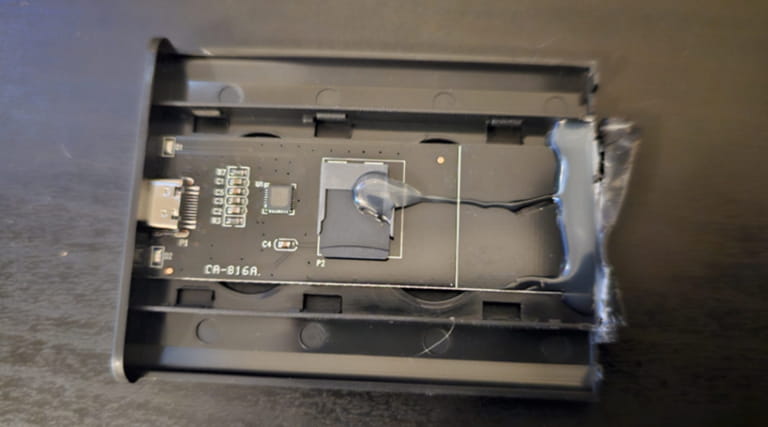
Security researcher Jack Barradell-Johns exposed the deceptive nature of a purported 32TB SSD purchased from AliExpress for £21. The too-good-to-be-true offer turned out to be a significant overstatement, revealing a mere 98GB of actual storage.
Uncovering the SSD scam
Barradell-Johns detailed his process of examining the device, which initially appeared promising with high-quality packaging and a design mimicking genuine portable SSDs. However, upon connecting it to his computer, he found that while Windows recognized it as a 32TB drive, the actual storage capacity was far less.

By repeatedly copying a 500MB file to the device, he determined that it could only store about 97.5GB of data.
Disassembling the device confirmed Barradell-Johns' suspicions. The interior housed a small circuit board with a Micro SD card and components for the USB-C port. The firmware had been manipulated to display a false storage capacity, making it seem like a high-capacity drive.

Firmware-based manipulation
Firmware is the low-level software that controls hardware functions. In this case, the firmware was altered to misreport the drive's capacity to Windows. This kind of manipulation can involve several techniques:
- Logical Block Addressing (LBA) alteration: The firmware can be programmed to falsely increase the number of logical blocks, which are used by the OS to determine the total storage.
- Partition table forgery: The firmware can create a fake partition table that suggests a larger capacity than actually available.
- False metadata reporting: The firmware can report incorrect size metadata when queried by the operating system.
These methods deceive the OS into thinking the device has more storage than it physically contains, and can extend the duration and depth of the deception for the end-buyers, especially those lacking technical skills to investigate. Obviously, if consumers attempt to fill the disk with enough data, they will get errors, but they may attribute these to other factors.
Consumers beware
Barradell-Johns' investigation underscores a critical lesson for tech consumers: if an offer seems too good to be true, it probably is.
This experience serves as a stark reminder to approach suspiciously cheap electronic components with caution.
- Verify product reviews and seller reputation before purchasing electronics.
- Be wary of deals that seem disproportionately cheap.
- Conduct thorough tests on newly bought storage devices to confirm their actual capacity.
- If you’ve been scammed, report the seller on the platform and leave a review under their items.







It is not only AliExpress. Most “reputable” companies like Amazon don’t know what their storefront sellers are doing.
At lease with amazon, I got a refund, once many years ago for a fake memory SD card and a few years ago (5) SSD Drives that claimed to be 8TB. They worked extremely slow up to about 32 GB which was the size of the internal SD card until they wrote over the first data.
Places like Wish are notorious for fake GPU or what ever product is popular or expensive.